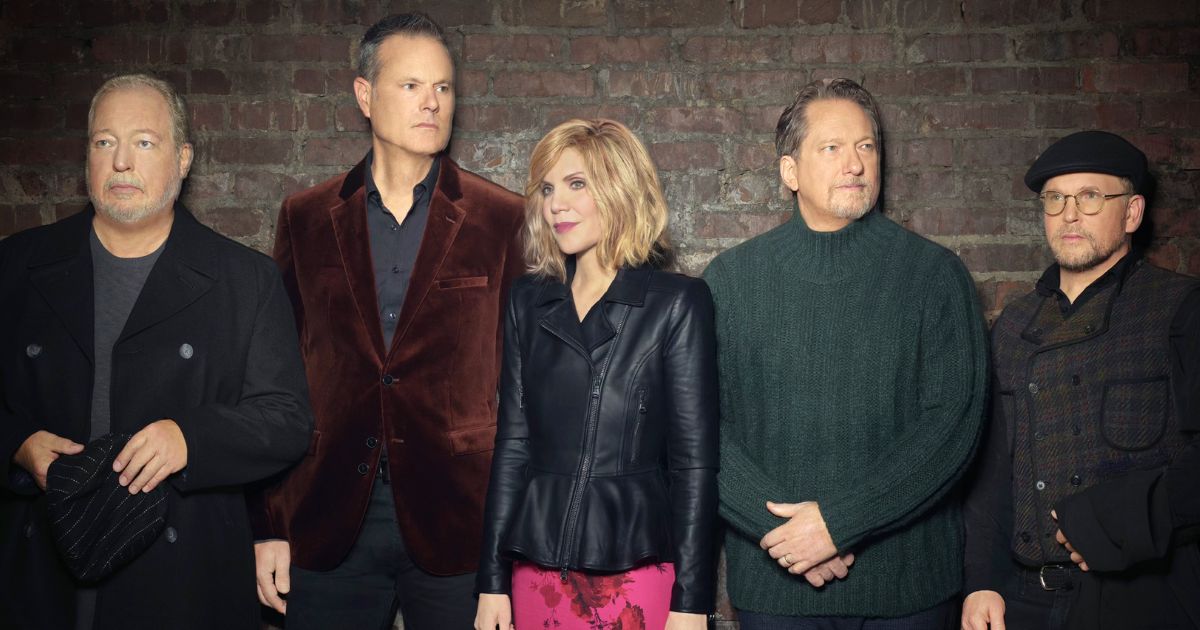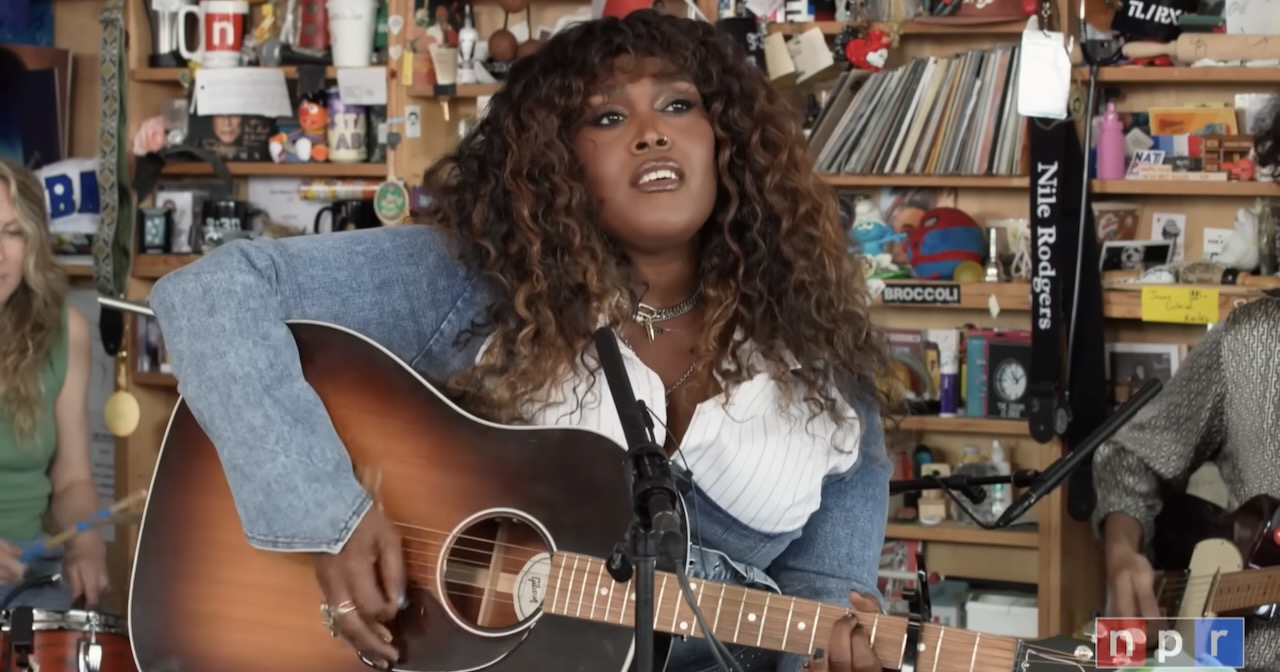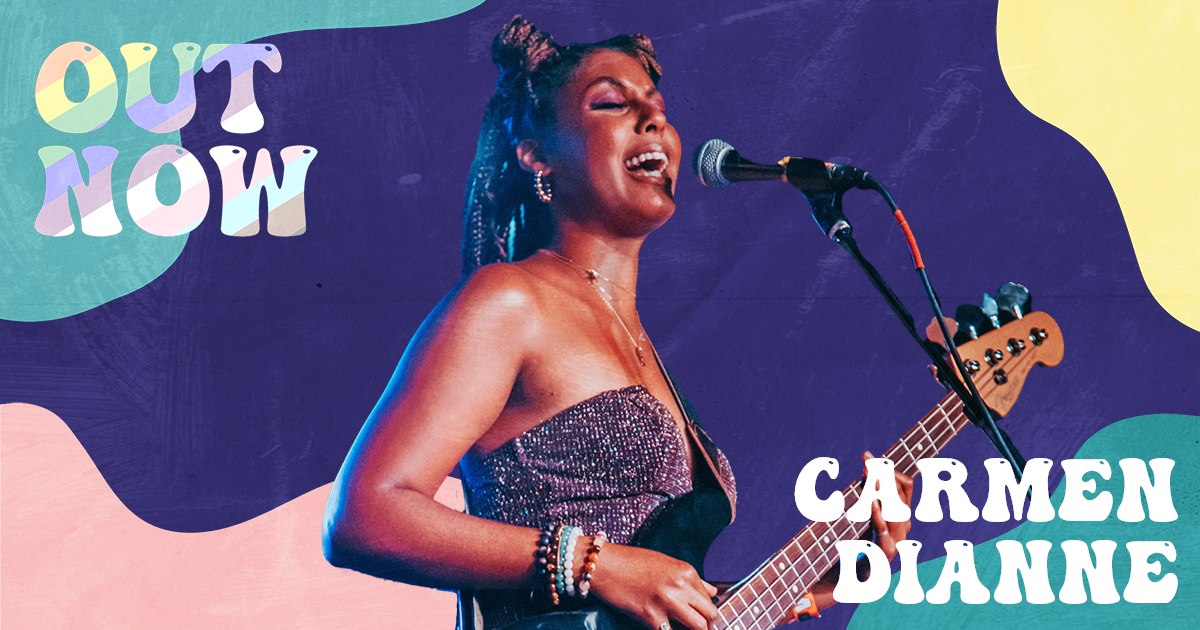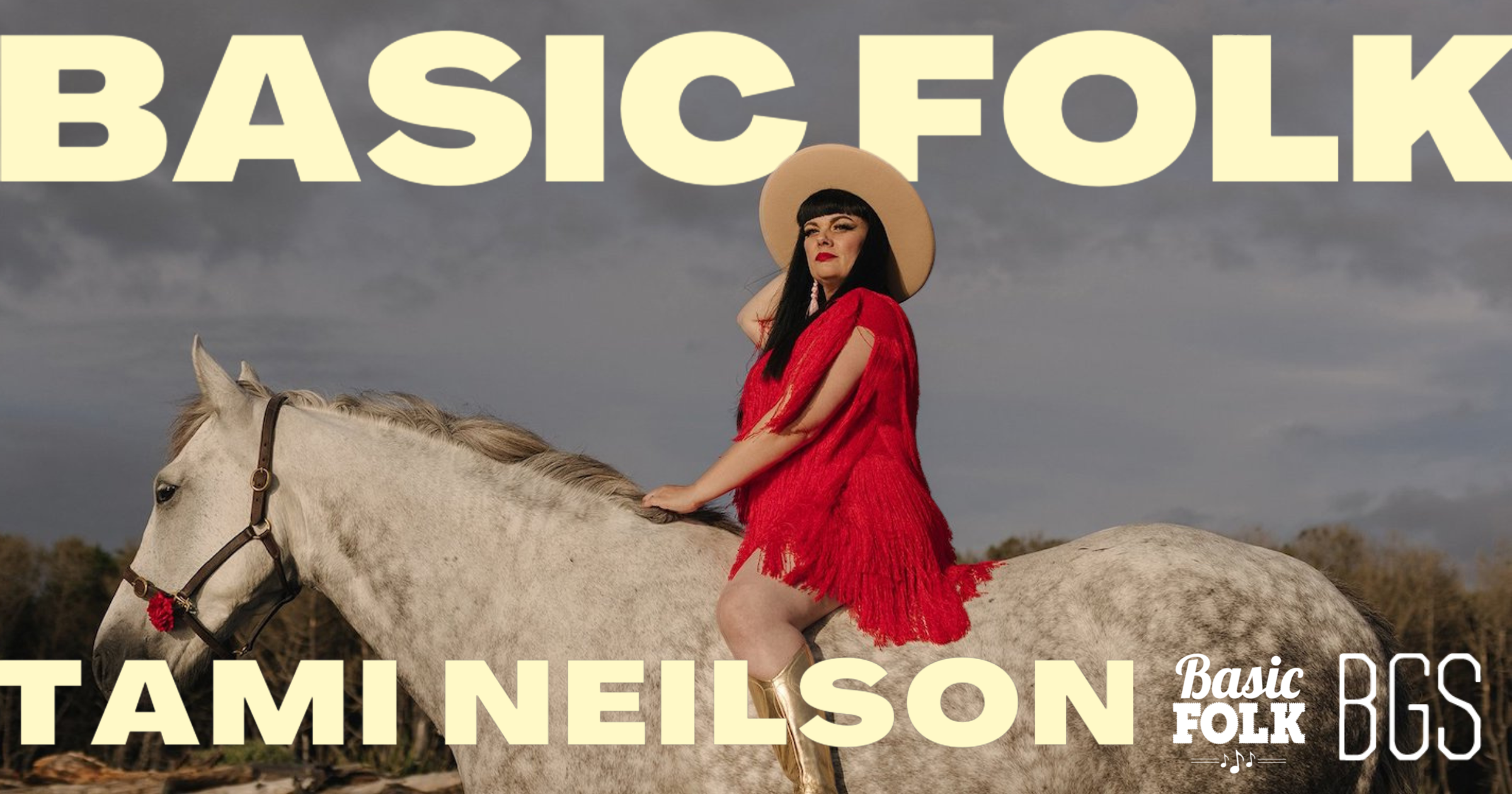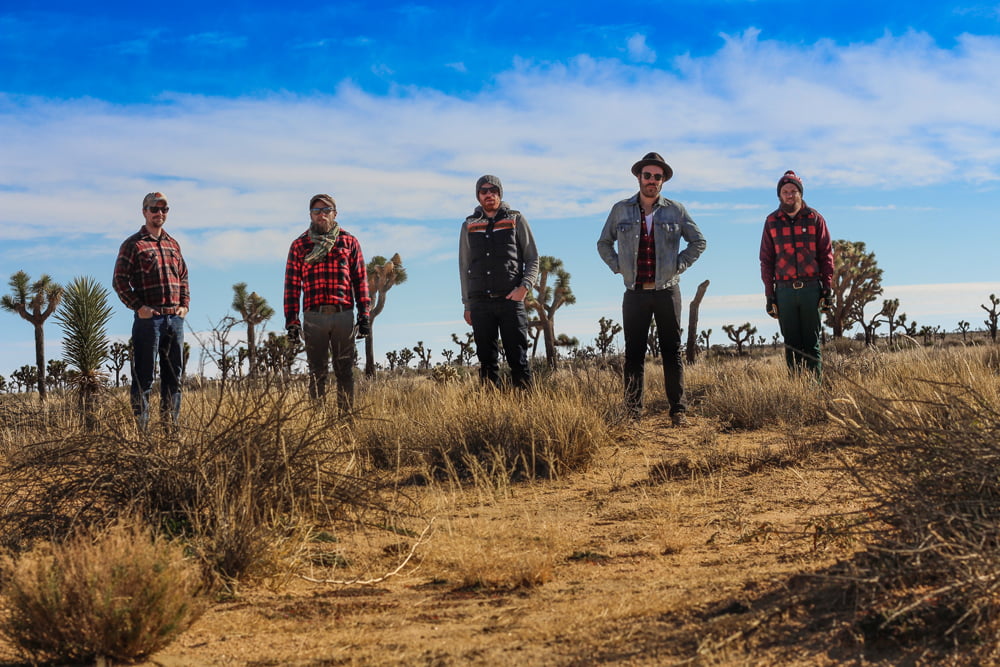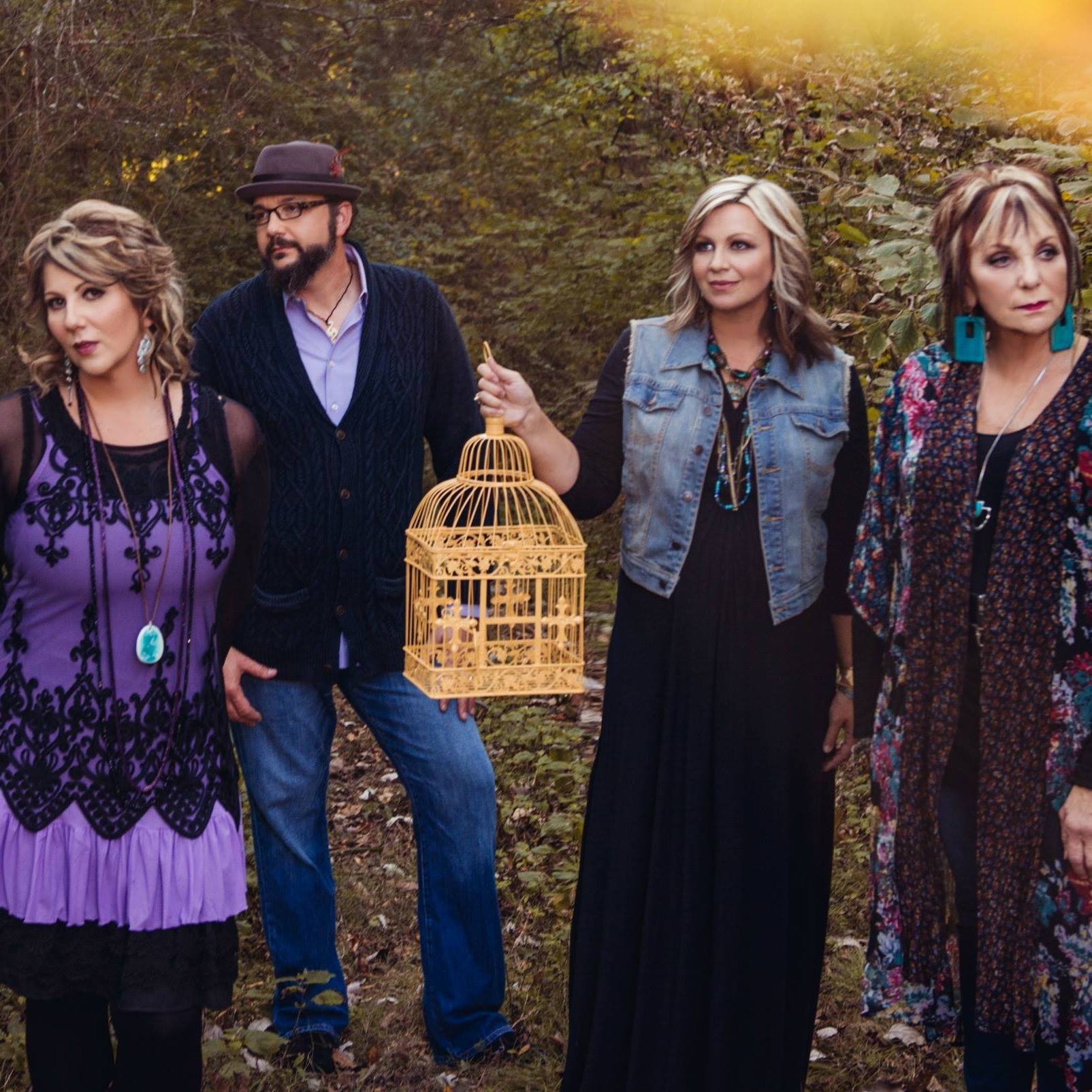From her early days as a young fiddler picking up prizes at youth fiddle competitions, accomplishment has defined Alison Krauss’ career. She’s cleaned up on trophies from the Recording Academy, the International Bluegrass Music Association, and numerous other acronymned institutions, and earned the highest civilian honor in her birth state of Illinois last year. She continues to rack up the achievements at an easy clip: Arcadia, her newest album with Union Station and their first together in 14 years, debuted at No. 1 on Billboard’s bluegrass chart.
Amid a return to themes of yearning love and rich storytelling, Arcadia marks a new chapter for Union Station with a changing of the guard. Dan Tyminski, the group’s longtime vocalist and himself a heavily decorated picker, revealed his departure from the band late last year. The ensemble – with Jerry Douglas, Barry Bales, and Ron Block still in the fold – enlisted bluegrass veteran Russell Moore to step in with them to sing, along with fiddler Stuart Duncan joining them on the road. Krauss recalls first encountering Moore and his singular voice at a Kentucky Fried Chicken bluegrass festival as a 14-year-old, and she’s been a devoted fan ever since. As a part of Union Station, Krauss sees Moore as an enlivening addition, and her admiration for her colleague hasn’t waned. “He’s like a nightingale!” she exclaims.
The time between Union Station records has manifested both another solo album, 2017’s Windy City, and the more recent Robert Plant reunion, 2021’s Raise the Roof. In the years prior, Krauss had to recuse herself from singing due to a bout with dysphonia, which had stricken her hero, Tony Rice, too. Her fight, in turn, inspired Rice to rally his voice in her honor when he was inducted into the Bluegrass Music Hall of Fame in 2013 (Krauss was inducted herself in 2021).
As she stares down a strident tour schedule that extends through the end of the summer, Krauss remains careful to protect the instrument that has connected her to millions of people over her decades in the bluegrass business. Pausing amid Union Station rehearsals ahead of their run together, Krauss unravels some of her thinking around Arcadia, and how songs transport her through time and memory.
What made you feel like the time was right for another Union Station record?
Alison Krauss: It’s always a process to get the right songs together. I’ve been looking for songs since we made Paper Airplane. I’m sure if COVID wouldn’t have happened, we probably would have been in there sooner. I sent out a group message in the beginning of 2021, like, “I think we’ve got some good songs here, we want to get together and listen.” Whenever we record, we find the first song that sounds like the opening to the record and have one that feels like that for a while. Then you find another one that might feel that way. When I heard “Looks Like the End of the Road,” it really felt like, for a listener, an introduction to new music.
You’ve talked about the record snapping into place around “Looks Like the End of the Road” elsewhere, too. What about it made you feel that way?
When you hear them, you just see [them], it’s like a movie. They just come alive. You see the story, and it’s spontaneous thought. You know you can’t control it and you’re a passenger to the story, and that’s what happens with things. It happened with that tune, “Looks like the End of the Road,” the first half, the first verse, when I heard it, I was like, “Oh boy, here we go.”
I think I wrote [the band] the next day. But then everything, all the stuff I’ve been holding on to, just fell into place. It was great. Luckily, when we played everything for the guys, they felt good about it. If they were in disagreement, it wouldn’t have worked.
On Arcadia, you’ve got “The Hangman” about resisting evil, “Granite Mills” about workers dying in a factory fire, and the lament for a young soldier in “Richmond on the James.” To what extent did these songs come from a sense of historical resonance with our present day?
It’s strange, you find you gravitate to certain things, and then you go, “Well, here’s the pattern.” It’s not beforehand, at least for myself. The songs find you and then you kind of find a pattern within them, how they fit together.
I’m not a songwriter. A songwriter, they’re writing how they feel, and if you gather tunes from when they’re writing during a certain time in their life, there’s going to be similarity in there. After we’re collecting these things, you do find a thread.
As a listener, what makes a song stick in your memory?
Anything that makes you daydream. You automatically go there. It’s so personal, those thoughts that you have regarding music, regarding any art. It makes one person feel some certain way, another will feel another. The things that come into your mind that are only for you. I love that private, personal experience you have with these things. I always think about what makes a person who they are, what they daydream about. Songs are more powerful than political people, when you look at it—they start movements, they change the way people see themselves.
It’s been like that throughout history. It has a way of changing the atmosphere, how you feel in three minutes, and the way your day goes. The whole thing is important to people and how they get around. You may need joy. You may need to have someone sing your story for you. You may not have known that this was your story.
It’s a magical thing, music in general, and to be a part of it is a really powerful experience. I find it – I don’t know what other word to use, other than magical. It’s costly to your emotions. Done well, you’ll feel it. That’s what we’re here to do.
Why does daydreaming hold such importance for you, when we’re so often discouraged from it as adults?
It has possibilities in every area of how you see yourself, how you see others, how you see the world. You may have an understanding of another person you didn’t have, because some musical moment took you some place you didn’t think it would. You have things you’re familiar with that will take you to the same place.
I’m careful with certain records because, when I hear them again, I don’t want them to change where they took me as a kid. I’ll go, “I’m gonna listen to this today, and I’m gonna put it away again, because I want to keep that place that it takes me for myself.” I don’t understand why it works that way, but it does. I always feel like you’ve got to be really careful with the words that come out of your mouth when you’re singing, because they’re powerful. You know you have to be in agreement, in your mind and in your heart, about what words are coming out of your mouth, because you are in agreement with them.
I’ve felt that way about records, where it’s like I don’t want to “tape over” whatever memories or feelings I already have associated with them.
It’s the same with me: “I’d love to hear that, but I’m gonna wait.” I don’t want to mix my life up with what that [music] did back then. I go watch YouTube, which is the greatest invention. Just the other day, I watched Nashville Bluegrass Band from 1985 or something. You watch that stuff, and it’s just so emotional. It’s costly when you remember hearing something for the first time, and you go back. It’s so bittersweet, so inspiring, and sad, because you can’t go back. The only thing that lets you go back is hearing these tunes again.
Looking back on your experience with dysphonia, and the time you took away from recording and public performance, what do you see about that period now that you couldn’t see while you were going through it?
Years ago, the only time you thought about your voice, really, is if you got the flu or something. I had never had that happen, where the throat would tighten up. It was disturbing. I went to the same voice teacher I see now, who helped me through that. He said, “You’ve got to clean off your desk,” which was really funny, because anytime I’d go to the studio, I used to literally clean the desk off. He’s like, “No, you’ve got too many other things on your mind. It has to be free.”
When there’s grief or too much stress, your throat tightens up, like if you want to cry or you’re angry, and it stays like that. How can you move through it? I try to stay on it, try to find other ways to make sure I don’t get bogged down. But you can’t always control it.
My voice teacher says some really funny stuff at times that I probably can’t repeat. I go see him pretty regularly to get ready. When you count on [your voice] and it goes away one time, you don’t feel so secure anymore. It’s maintenance. I went back to him one time, like, “I’m worried, why is this happening again?” And he goes, “Well, you don’t sweep the floor one time and it’s done forever. You gotta keep sweeping the floor.” That helped.
I’ve got to keep sweeping the floor.
Continue exploring our Artist of the Month content featuring Alison Krauss & Union Station here.
Photo Credit: Randee St. Nicholas
